Do Americans value climate action enough to vote for it?
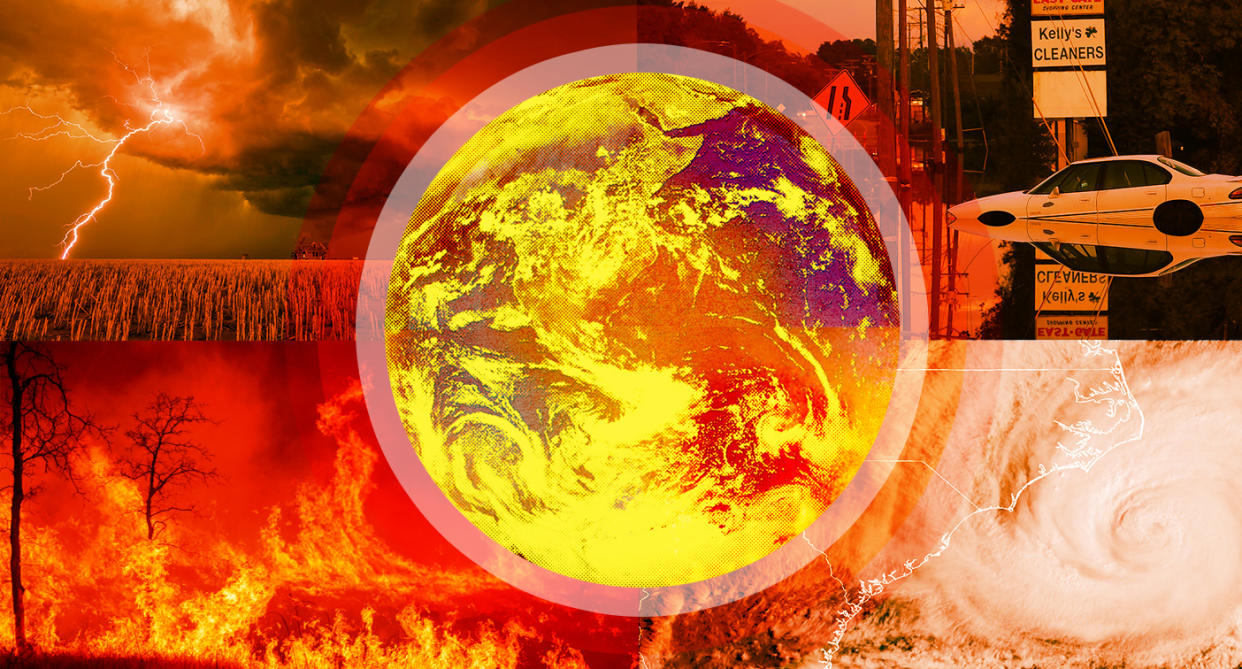
Climate change may be one of the most consequential issues facing humanity right now, but how important will it be in the upcoming midterms?
As the world marches forward with the Paris Agreement, which aims to limit the increase in average global temperature to below 2°C, the United States is still deeply divided over whether to take part. The Democratic Party has embraced climate action as a central part of its platform, while President Trump has dismissed climate change as a hoax, and his administration has been dismantling regulations to deal with it.
Yet voters, especially those in coastal communities at risk from rising sea levels, are starting to take the issue more seriously — even some Republican voters. The Yale Program on Climate Change Communication found that 54 percent of registered voters think global warming should be a high priority for the president and Congress, including 78 percent of Democrats, 58 percent of independents and 25 percent of Republicans. Another conclusion of the survey: Concern about man-made climate change has increased among moderate Republicans by 15 percentage points since May 2017 and among conservative Republicans 7 points since October 2017.
But it is an issue that resonates most strongly with Democratic voters, and in most cases works to the advantage of Democratic candidates.
“Certainly in the case of Democrats who are reluctant to take action, but even more broadly, if politicians don’t follow voters’ lead on the need for climate action in 2018, they could find themselves unemployed after November,” Karyn Strickler, the founder and president of Vote Climate U.S. PAC, told Yahoo News. “For voters, climate change is no longer just about abstract scientific models, or something that your grandkids will face.”
Her organization plans to launch a voter’s guide next month that will give every incumbent and challenger for a seat in Congress a “climate calculation” — a score that assesses their votes, positions and leadership on climate action.
It’s also an issue that divides voters by age. Americans under 35 are far more likely to take it seriously than those 55 and older.
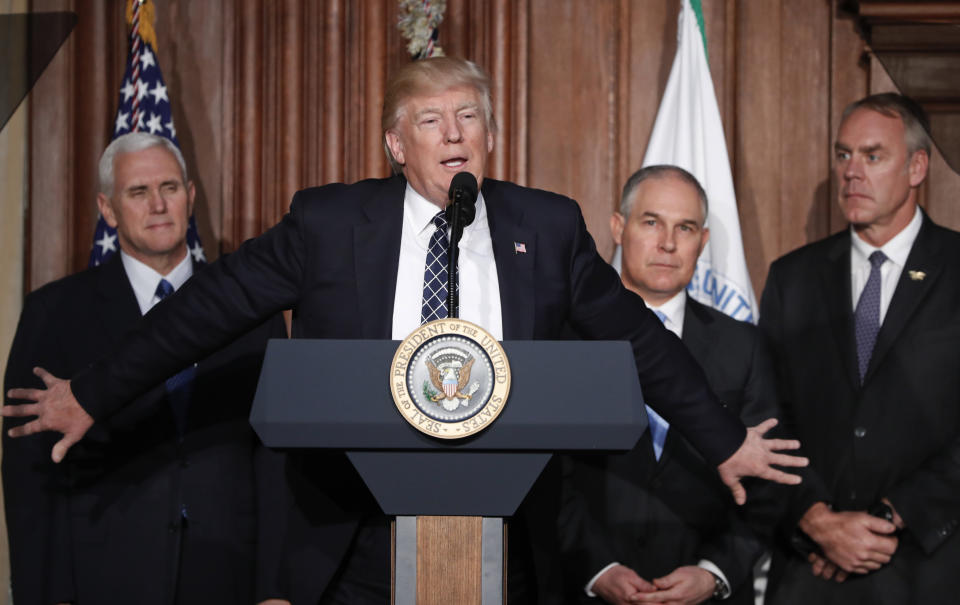
Andrew Rosenberg, the director of the Center for Science and Democracy at the Union of Concerned Scientists, said voters value climate action more with every natural disaster. He said the public is rightly worried about the Trump administration’s attacks on science, including the sidelining of scientific evidence and abusing scientific integrity.
“They have a right to information, not just a political viewpoint. The public does have a right to know,” Rosenberg told Yahoo News. “What I know is it’s really important that people pay attention and have a realistic conversation about how to address the science and science policy issues.”
But political experts on the right aren’t all convinced. Nicolas Loris, an economist and research fellow at the Heritage Foundation, said the longer-term effects of climate change may not resonate with voters who don’t think it will affect them.
“Climate change continually ranks at the bottom or near the bottom of priorities for voters. I don’t think this November will change that course,” Loris told Yahoo News. “That’s not to say it can’t be woven into certain debates and be marginally more important in some states and districts than others.”
Though scientists say immediate action is needed to mitigate more severe consequences down the line, polls regularly show that most voters are more concerned about immigration, the economy, health care and other issues than climate change.

A flaw in human psychology is partly responsible for the threat of climate change being undervalued for so long. Our brains have evolved to react quickly when confronted with immediate, visceral dangers like terrorism or street crime rather than long-term, slow-moving risks like the increase in carbon dioxide in the Earth’s atmosphere creating a greenhouse gas effect that will fundamentally change our climate.
Another problem is that climate change is a “tragedy of the commons,” where acting in one’s rational self-interest is at odds with the greater good. We would all be better off if every nation weaned itself off fossil fuels, but any one nation would risk economic hardship by forgoing these energy sources unilaterally.
It’s often difficult to isolate a discrete policy that could win any given election since voters evaluate a candidate’s overall platform, but it’s most likely that Democrats would benefit from winning over votes in coastal communities that are at greater risk of suffering from the consequences of climate change in the near future.
Environmental groups like the League of Conservation Voters (LCV) and the Environmental Defense Action Fund are promoting surveys that suggest that candidates can swing competitive races by publicly denouncing the Trump administration’s attacks on environmental regulations. According to a recent poll by the Global Strategy Group, this messaging could shift vote choice by 11 percent in the environmentalist candidate’s favor in 20 battleground House districts.
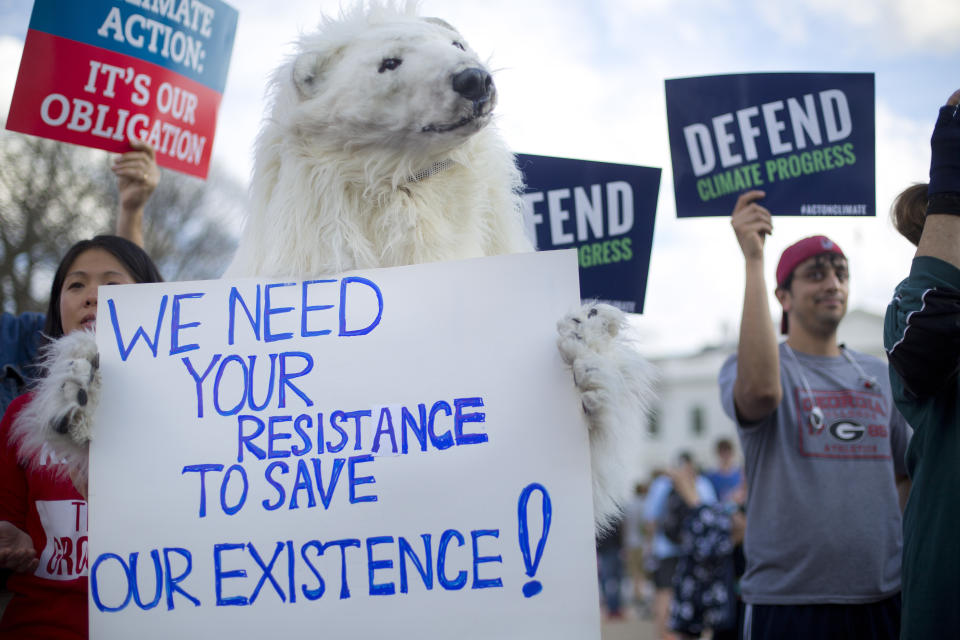
LCV announced on Sept. 12 that more than 1,400 candidates running for office this November at every level of government have committed to the goal of having 100 percent clean energy in their state by 2050.
Pete Maysmith, LCV’s senior vice president for campaigns, said climate change and its impacts have risen to the forefront in House districts that are experiencing climate-fueled crises.
“Just look at Florida, where toxic algae has become a top election issue. Or California, where anti-environment members of Congress like Mimi Walters — who has voted against nearly every attempt to address the climate crisis — suddenly signed a letter calling for climate action as the state faces devastating wildfires,” Maysmith told Yahoo News. “Climate is clearly on the ballot, and Republican leadership’s many environmental attacks could ultimately cost them control of the House.”
Scientists say global warming makes it much harder for humans to control red tide, a bloom of toxic algae, because warmer air and ocean temperatures make the water more hospitable to those algae.
David Shapiro, a Democratic candidate for Congress in Florida’s 16th District, which includes the city of Sarasota, said his community, like many other coastal communities in Florida, doesn’t just read about the consequences of Washington’s poor environmental stewardship — it lives them.
“Every day, I hear from residents across my community about the damage red tide is doing to their fishing businesses, restaurants and families’ pocketbooks,” Shapiro told Yahoo News. His opponent, six-term Republican Rep. Vern Buchanan, has a 9 percent approval rating from the League of Conservation Voters.
According to the Cook Political Report, this seat is “likely Republican,” but Shapiro, who has raised more than $1 million, may give Buchanan a tougher race than he’s had in nearly a decade.
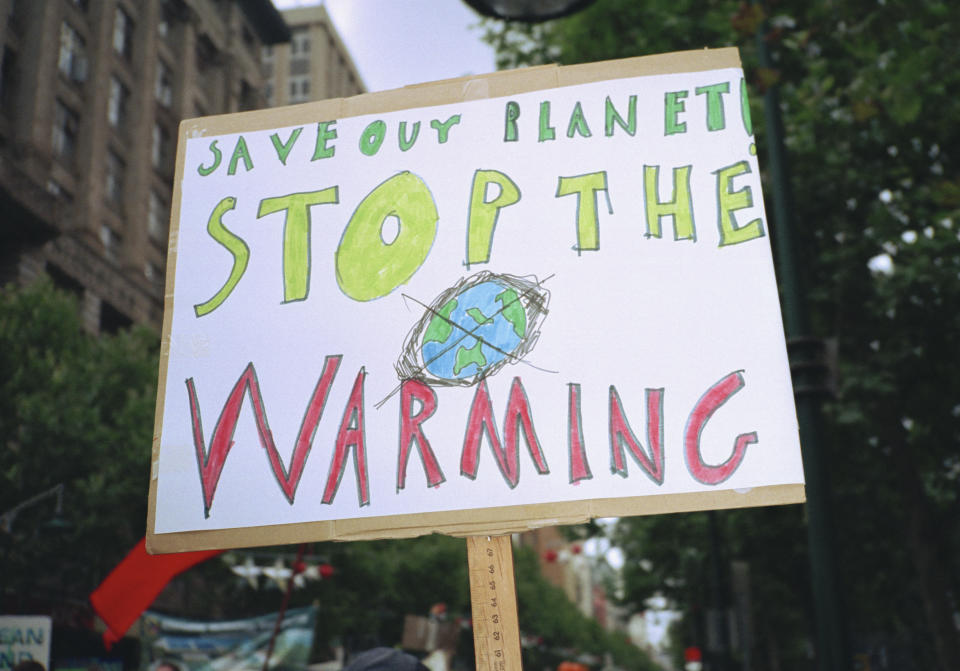
Nancy Soderberg, a Democratic candidate for Congress in Florida’s Sixth District, which includes the city of Daytona Beach, said the threat of climate change is at the top of voters’ minds in her community.
“We see water levels rising here in this district and the red tide getting worse every year in Southern Florida. The folks I talk to here are concerned about the failures of Washington to address the urgent issue of climate change,” Soderberg told Yahoo News.
“This is something I’ve been involved in since the early ’90s, when we were beginning international negotiations to bring down levels of CO2 emissions. We saw this as a threat to national security then, and folks in my community know that we need Washington to see it as such now.”
Donna Shalala, who served as secretary of health and human services under President Bill Clinton, is the Democratic nominee in a tight race for Florida’s 27th Congressional District, which includes a large portion of Miami.
“South Florida is ground zero for sea-level rise and continues to be at risk with the effects of climate change. We are uniquely positioned between two national parks — Everglades and Biscayne — both of which feel the effects of climate change every day,” Shalala told Yahoo News. “Without question, it will be a critical issue for voters in FL-27, because the voters want to send someone to Washington who will get something done to protect our environment and combat climate change.”
Political and business leaders from around the world are meeting for Climate Week in New York City from Sept. 24 to 30. Scheduled to coincide with the U.N. General Assembly, it’s one of the foremost annual global summits, coordinating climate action at international and local levels.
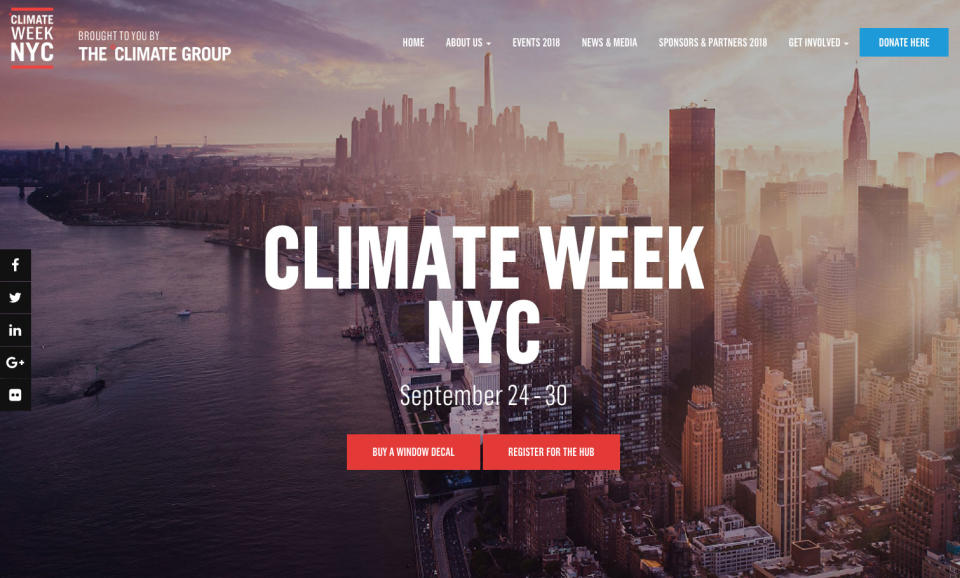
_____
Read more from Yahoo News:



